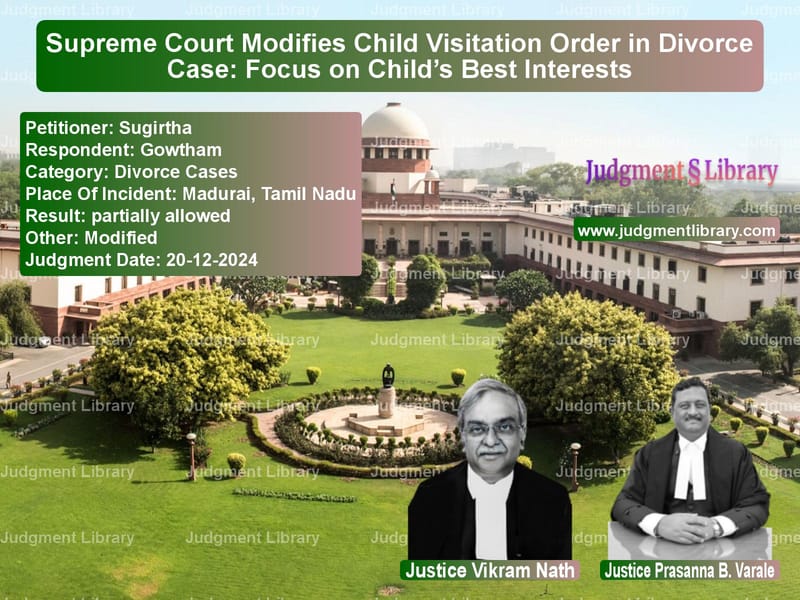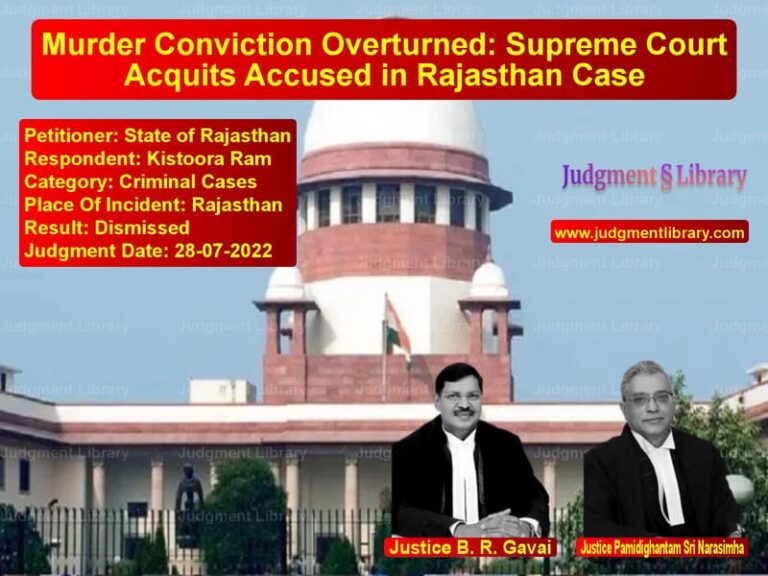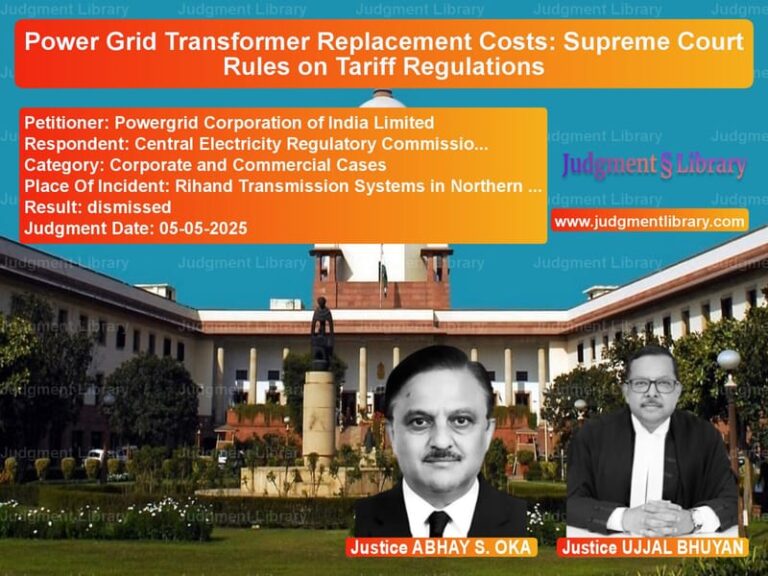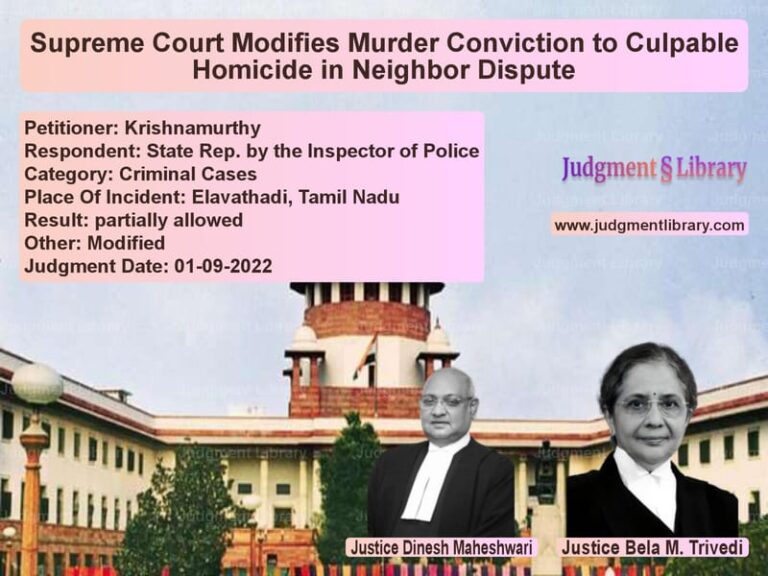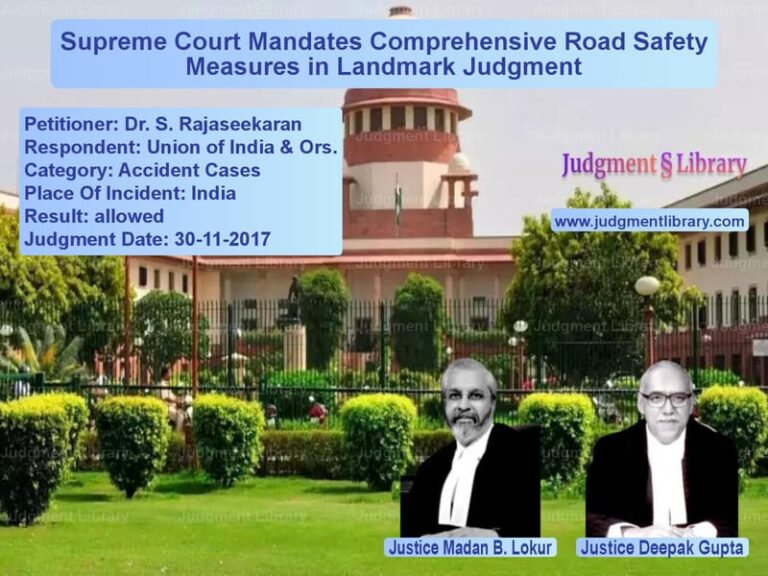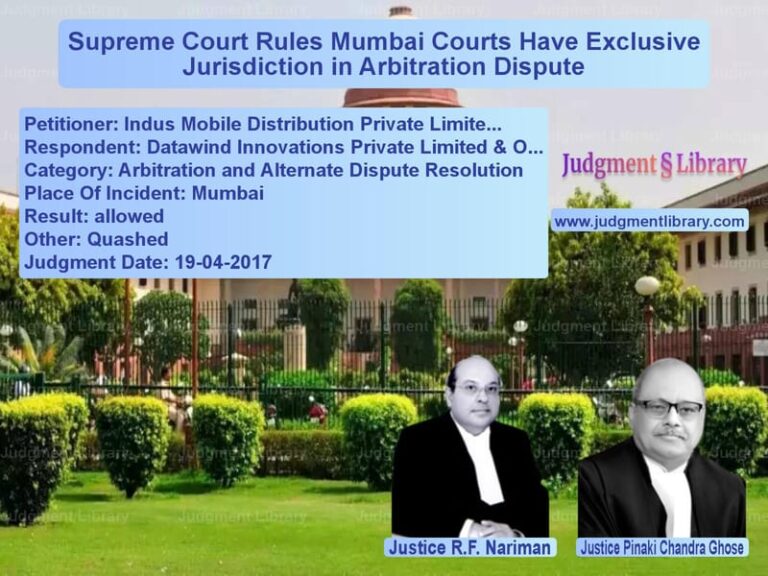Supreme Court Modifies Child Visitation Order in Divorce Case: Focus on Child’s Best Interests
The Supreme Court of India has modified a Madras High Court ruling regarding child visitation rights in an ongoing divorce dispute between Sugirtha and Gowtham. The Court ruled that the father’s visitation rights should not compromise the health and well-being of the child. Accordingly, it changed the visitation venue from Karur to Madurai, reducing the hardship on the mother and the minor child.
Background of the Case
The couple got married on September 9, 2021, and a daughter was born on June 6, 2022. Soon after the child’s birth, marital discord arose, and the mother filed for divorce under Section 13(1)(ia) of the Hindu Marriage Act, 1955, citing cruelty. She alleged that:
- The father had been violent towards her and the child.
- He abandoned them on July 1, 2022, and later attempted to harm them on August 16, 2022.
- She had been living separately from the respondent since August 18, 2022.
High Court’s Ruling
In October 2023, the father applied for visitation rights under Section 26 of the Hindu Marriage Act. The Family Court allowed his petition and directed that the mother bring the child to Karur every Sunday from 10:00 AM to 12:00 PM to hand over the child to the father.
The mother challenged this ruling before the Madras High Court, arguing that:
- She had relocated to Madurai, making the 300-kilometer round trip (Madurai-Karur) difficult.
- The father had never taken care of the child and was a “stranger” to her.
- There were threats to her and the child’s safety.
The High Court dismissed the mother’s appeal but modified the Family Court’s ruling by extending visitation hours from 10:00 AM to 2:00 PM every Sunday. Additionally, it allowed visitation on alternate weekends after two months.
Supreme Court’s Examination
The mother approached the Supreme Court, arguing that:
- Traveling 300 kilometers weekly was not feasible for the child.
- The father had no prior bond with the child, making such forced meetings distressing.
- The child’s best interest was not considered in the lower court orders.
The Supreme Court, led by Justices Vikram Nath and Prasanna B. Varale, analyzed the case and noted:
1. Child’s Well-being is the Top Priority
The Court ruled that while a father has a right to visit his child, it cannot come at the cost of the child’s health and comfort.
“The father’s agony of missing his child’s childhood cannot override the best interest of the minor daughter.”
2. Domestic Violence Allegations Need Full Trial
The Court acknowledged the allegations of violence but stated that such claims must be examined separately. However, they should not interfere with interim visitation rights.
3. Location of Visitation Must be Child-Friendly
The Court found that the Family Court and High Court orders did not justify why Karur was chosen as the visitation site. It ruled that the venue should be convenient for the child.
“The orders do not provide any justified reasons and do not appear to have kept the best interest and welfare of the child as paramount.”
Final Judgment
The Supreme Court ruled:
- Visitation venue changed from Karur to Madurai.
- Father granted visitation every Sunday from 10:00 AM to 2:00 PM.
- Meetings to take place in a public park or temple in Madurai.
- Mother must be present but stay at a distance of approximately 10 feet.
- Child to be returned to the mother by 2:00 PM.
Implications of the Judgment
This ruling has significant implications for child custody and visitation disputes:
1. Courts Must Prioritize the Child’s Comfort
The Supreme Court has made it clear that visitation schedules must not impose undue hardship on the child.
2. Domestic Violence Allegations Require Separate Adjudication
While allegations of domestic abuse are serious, they cannot automatically negate a parent’s right to visitation.
3. Child Visitation Orders Must Have a Clear Justification
The ruling emphasizes that courts must provide sound reasoning for visitation locations.
Conclusion
The Supreme Court’s decision in Sugirtha vs. Gowtham reaffirms that child visitation orders should be tailored to suit the child’s best interests rather than the convenience of either parent. The ruling balances the father’s right to see his child with the child’s need for stability and security, ensuring that family law serves the well-being of minors.
Petitioner Name: Sugirtha.Respondent Name: Gowtham.Judgment By: Justice Vikram Nath, Justice Prasanna B. Varale.Place Of Incident: Madurai, Tamil Nadu.Judgment Date: 20-12-2024.
Don’t miss out on the full details! Download the complete judgment in PDF format below and gain valuable insights instantly!
Download Judgment: sugirtha-vs-gowtham-supreme-court-of-india-judgment-dated-20-12-2024.pdf
Directly Download Judgment: Directly download this Judgment
See all petitions in Child Custody
See all petitions in Domestic Violence
See all petitions in Mutual Consent Divorce
See all petitions in Judgment by Vikram Nath
See all petitions in Judgment by Prasanna Bhalachandra Varale
See all petitions in partially allowed
See all petitions in Modified
See all petitions in supreme court of India judgments December 2024
See all petitions in 2024 judgments
See all posts in Divorce Cases Category
See all allowed petitions in Divorce Cases Category
See all Dismissed petitions in Divorce Cases Category
See all partially allowed petitions in Divorce Cases Category

